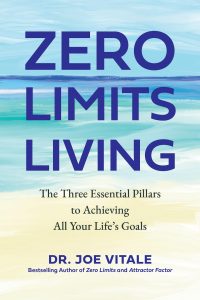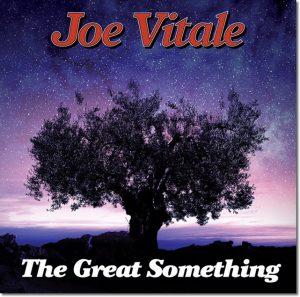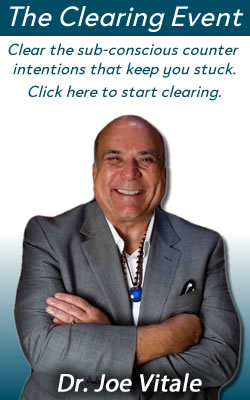Tag: Transcendentalism
Emerson Applied Today
By Joe Vitale No comments yet Emerson, Thoreau, Transcendentalism, zero limits living
Transcendentalism, an intellectual movement rooted in the early 19th century, championed by Ralph Waldo Emerson and Henry David Thoreau, continues to echo through the corridors of time, resonating with vibrant relevance in our modern era.
This philosophy, centered on the inherent goodness of both people and nature, advocates for individual intuition as a critical guide and emphasizes a deep, spiritual individual connection with the natural world.
In an age dominated by digital screens and fast-paced living, the transcendental principles offer a refreshing wellspring of wisdom for leading a more mindful, fulfilling life.
Let’s embark on a colorful journey to explore how Emerson and Thoreau’s transcendentalism can be practically applied today, illuminating paths towards personal growth, environmental stewardship, and social reform.
Self-Reliance and Personal Growth
At the heart of transcendentalism lies the concept of self-reliance, a powerful call to trust one’s inner voice and instincts.
In Emerson’s view, each individual is capable of discovering truth through personal intuition, rather than adhering strictly to societal norms or external authorities.
In today’s context, this principle encourages us to carve out our unique paths in life, embracing authenticity over conformity. It’s a call to cultivate our inner resources, fostering resilience and creativity in the face of challenges.
In practical terms, self-reliance can manifest through pursuing passions that resonate with our deepest selves, rather than following preordained career or life trajectories.
It’s about listening to our inner dialogues and honoring our feelings and thoughts as valid and important. This approach fosters a strong sense of self-worth and independence, vital for personal growth and happiness in our increasingly complex world.
Nature as a Source of Inspiration and Healing
Thoreau’s experiment in simple living at Walden Pond is a testament to the transcendentalist belief in nature as a sanctuary for spiritual and personal rejuvenation.
In modern times, this translates into a growing recognition of the therapeutic effects of spending time outdoors. Nature is not only a respite from the technological whirlwind of contemporary life but also a profound teacher, offering lessons in patience, resilience, and interconnectedness.
Engaging with the natural world can take numerous forms, from adopting a more sustainable lifestyle to protect our environment, to regular practices like forest bathing, gardening, or simply taking mindful walks in the park.
These activities ground us, helping to alleviate stress and enhancing our overall well-being. They remind us of our place within the larger web of life, fostering a sense of responsibility towards the preservation of our planet.
Civil Disobedience and Social Reform
Thoreau’s essay, “Civil Disobedience,” argues for nonviolent resistance to unjust laws, a concept that has inspired countless social reform movements throughout history.
Today, this principle is more relevant than ever, as individuals and communities stand up against social injustices, environmental degradation, and inequality.
Transcendentalism encourages us to question societal norms and laws that conflict with our moral compass and to take action in the pursuit of justice.
Practically, this can involve engaging in peaceful protests, advocating for policy changes, or supporting causes and organizations that align with our values.
It’s about using our voices and resources to effect change, whether by voting, volunteering, or raising awareness about critical issues. This aspect of transcendentalism underscores the power of collective action and the importance of standing up for one’s beliefs in the face of adversity.
Education and the Cultivation of Free Thought
Transcendentalists valued education, not as a means to an end but as a lifelong process of intellectual and spiritual growth.
They advocated for an educational system that encourages critical thinking, creativity, and the development of each individual’s unique potential.
In today’s digital age, with information at our fingertips, the transcendental emphasis on independent thought and personal discovery is particularly poignant.
We can apply this philosophy by seeking diverse sources of information, engaging in lifelong learning, and fostering environments—at home, in schools, and in workplaces—that encourage curiosity and open-minded exploration.
It’s about valuing questions as much as answers and recognizing that education is not confined to classrooms but is an expansive, never-ending journey.
Embracing Minimalism and Simplifying Life
Thoreau’s experiment in minimalism at Walden Pond, where he sought to live deliberately and focus on the essentials of life, provides a blueprint for modern minimalism.
In an era of overconsumption and environmental crises, adopting a more minimalist lifestyle can lead to not only personal clarity and freedom but also a more sustainable existence on this planet.
This approach involves decluttering not just our physical spaces but also our schedules and digital lives, making room for what truly matters.
It’s a call to evaluate our consumption habits, reduce waste, and find joy in simplicity and experiences over material possessions.
By embracing minimalism, we align our lives with transcendental values, promoting a healthier, more mindful, and environmentally conscious lifestyle.
In conclusion, Emerson and Thoreau’s transcendentalism, with its rich tapestry of self-reliance, deep reverence for nature, commitment to social justice, and a holistic approach to education and simplicity, offers a vibrant philosophical framework for navigating the complexities of modern life.
By integrating these timeless principles into our daily lives, we can cultivate a deeper sense of purpose, connection, and harmony with the world around us.
The journey towards a transcendental-inspired life is both a personal quest and a collective endeavor, one that promises to enrich our lives and the fabric of our communities in profoundly beautiful ways.
Expect Miracles.
Love
Dr Joe
PS – Preorder my new book today wherever books are sold:
Note: When I was a kid wanting to be a writer, my father once told me, “People don’t care about great writing.” Was he right? Let’s see. I did not write this blog post. I prompted ChatGPT to write it for me. I changed one word in it, and adjusted the paragraph breaks, but otherwise left it as it was presented to me by AI. Why? Not because it’s great writing (it’s not) but because I wanted to run a test. The style is clearly not mine, but maybe my father was right; maybe people don’t care about great writing. I’m wondering if you noticed or suspected something was “off” with this blog post. If so, leave a comment.




